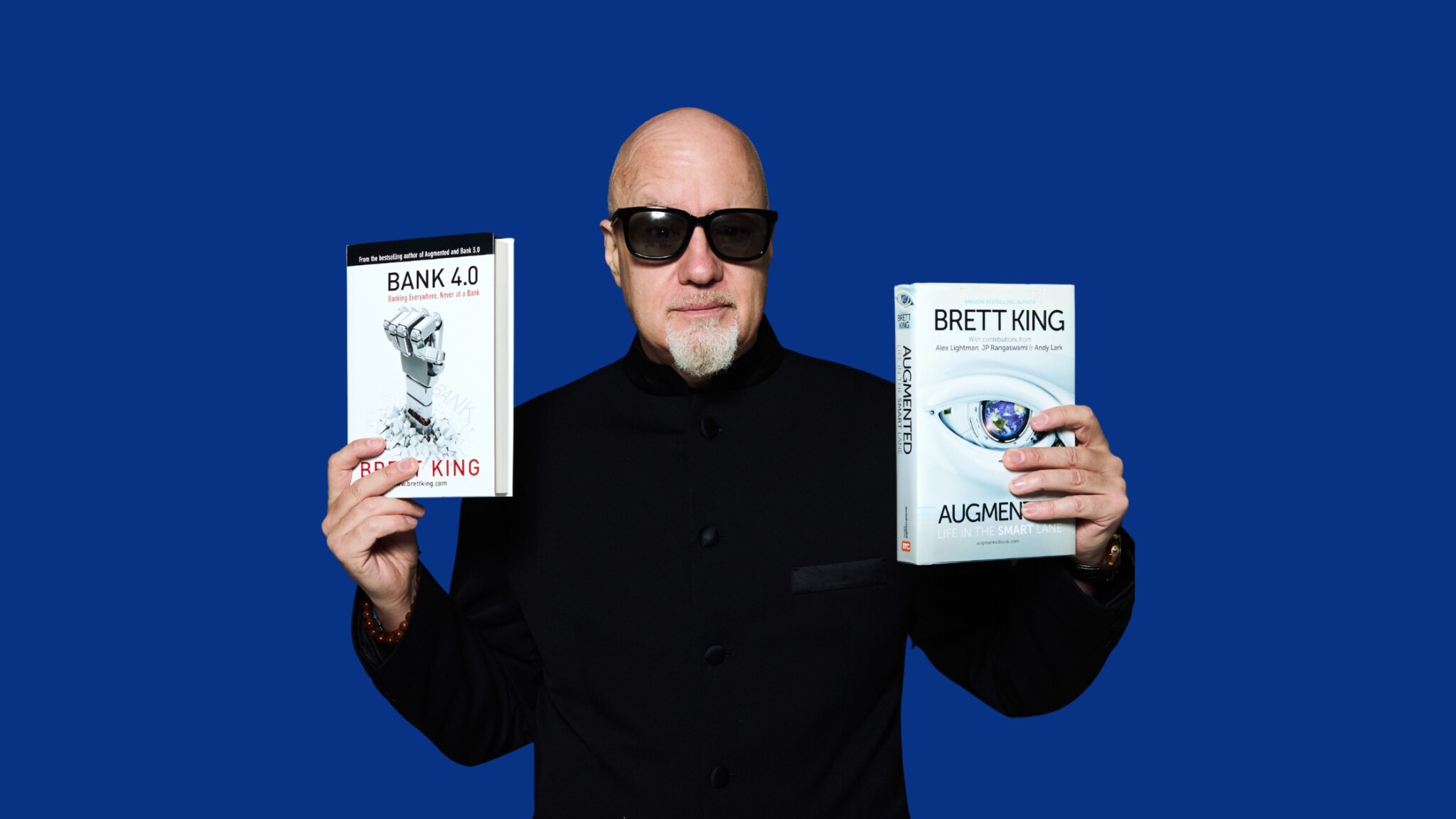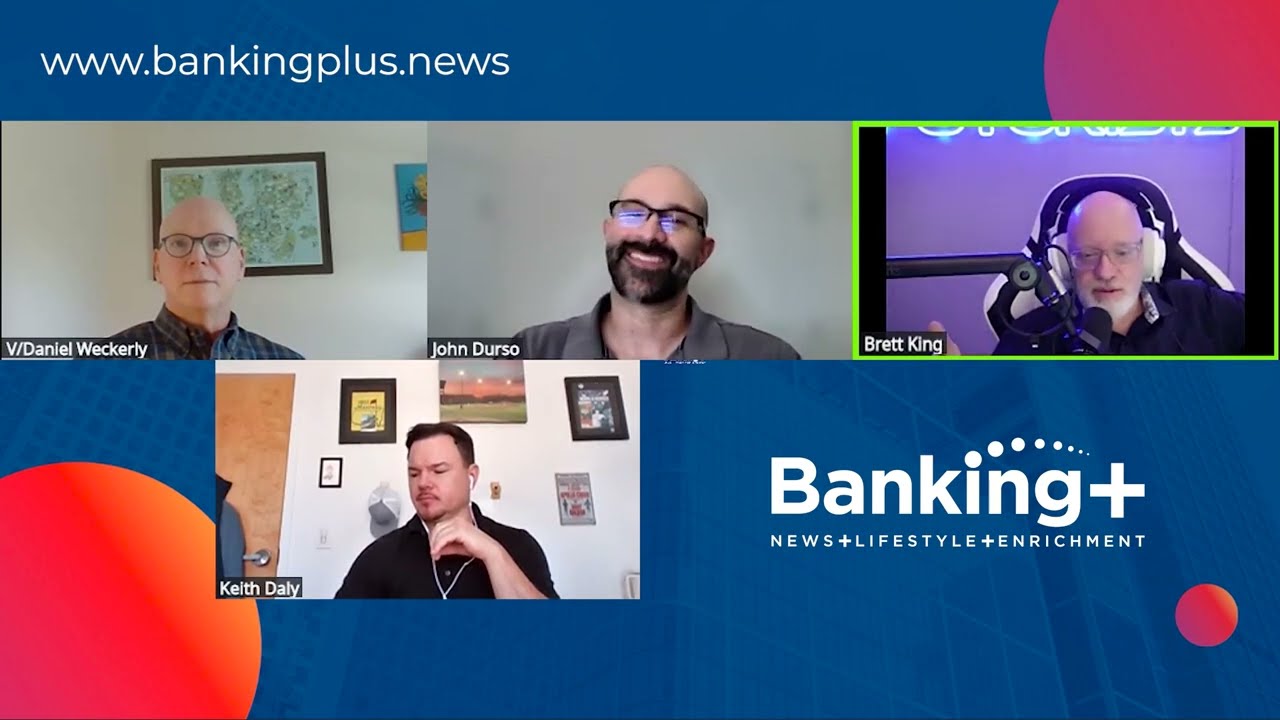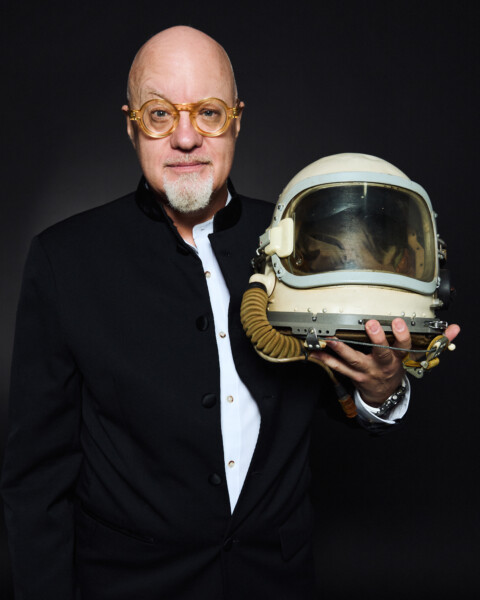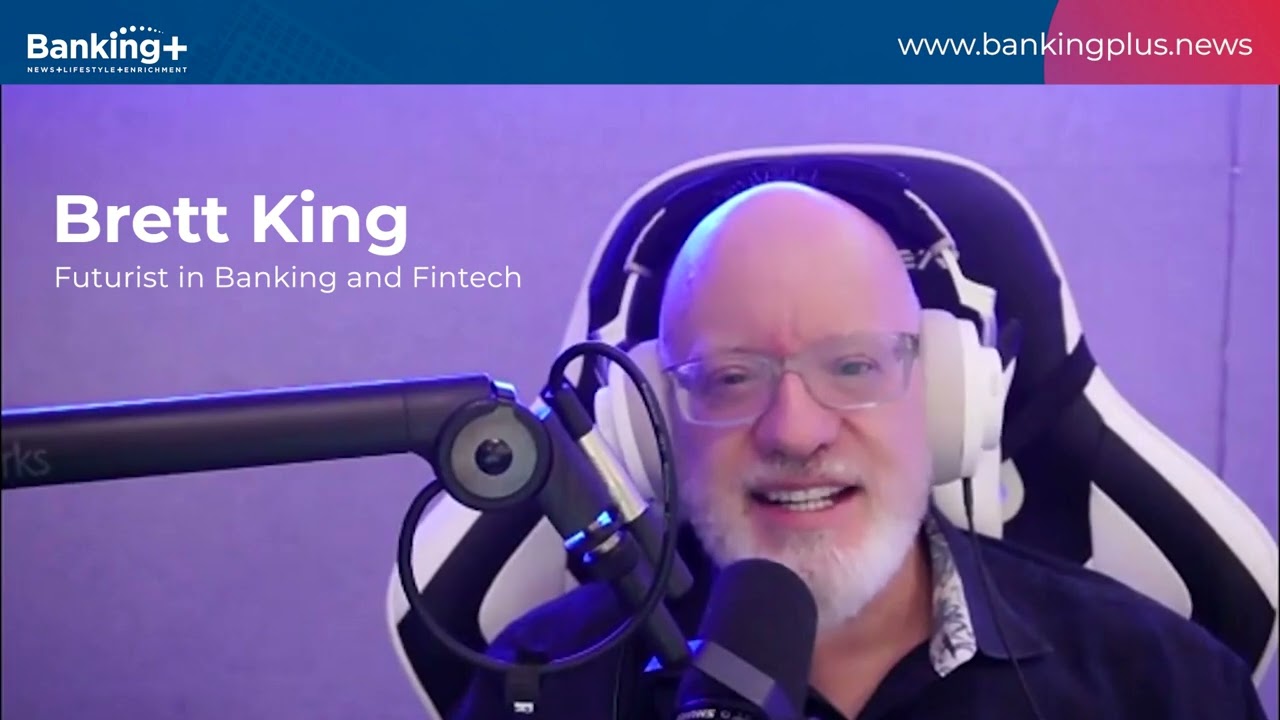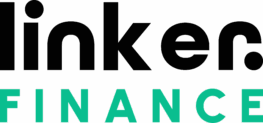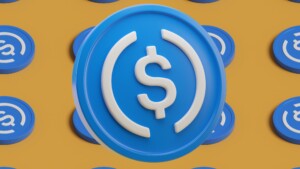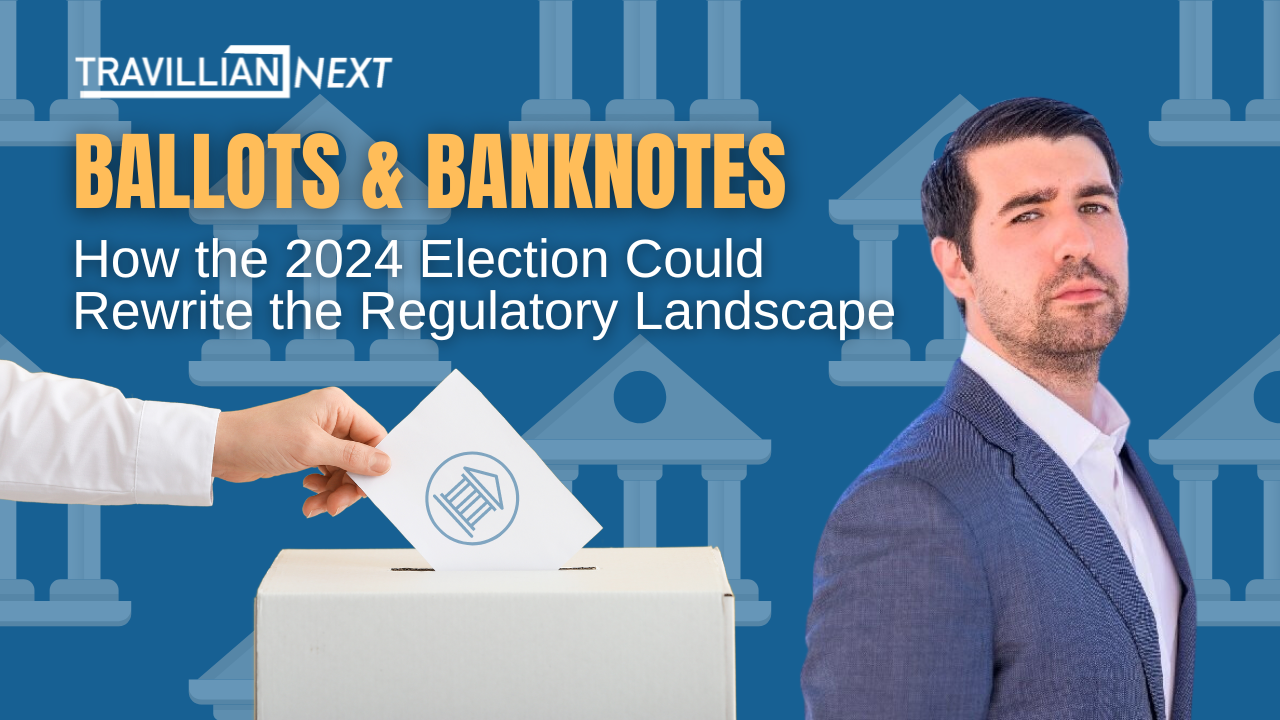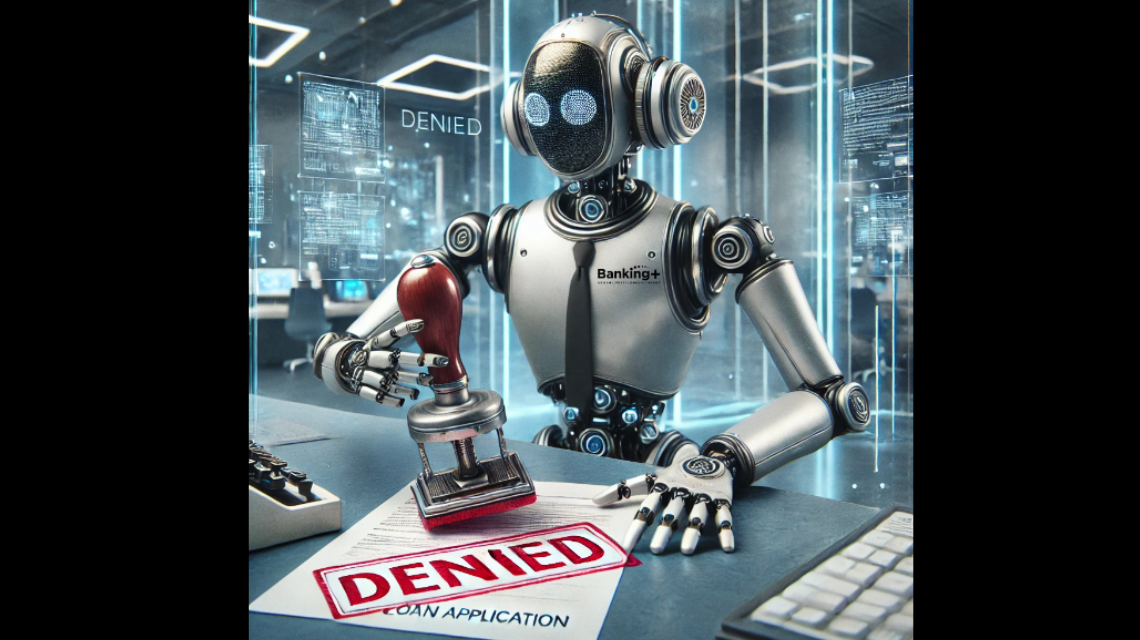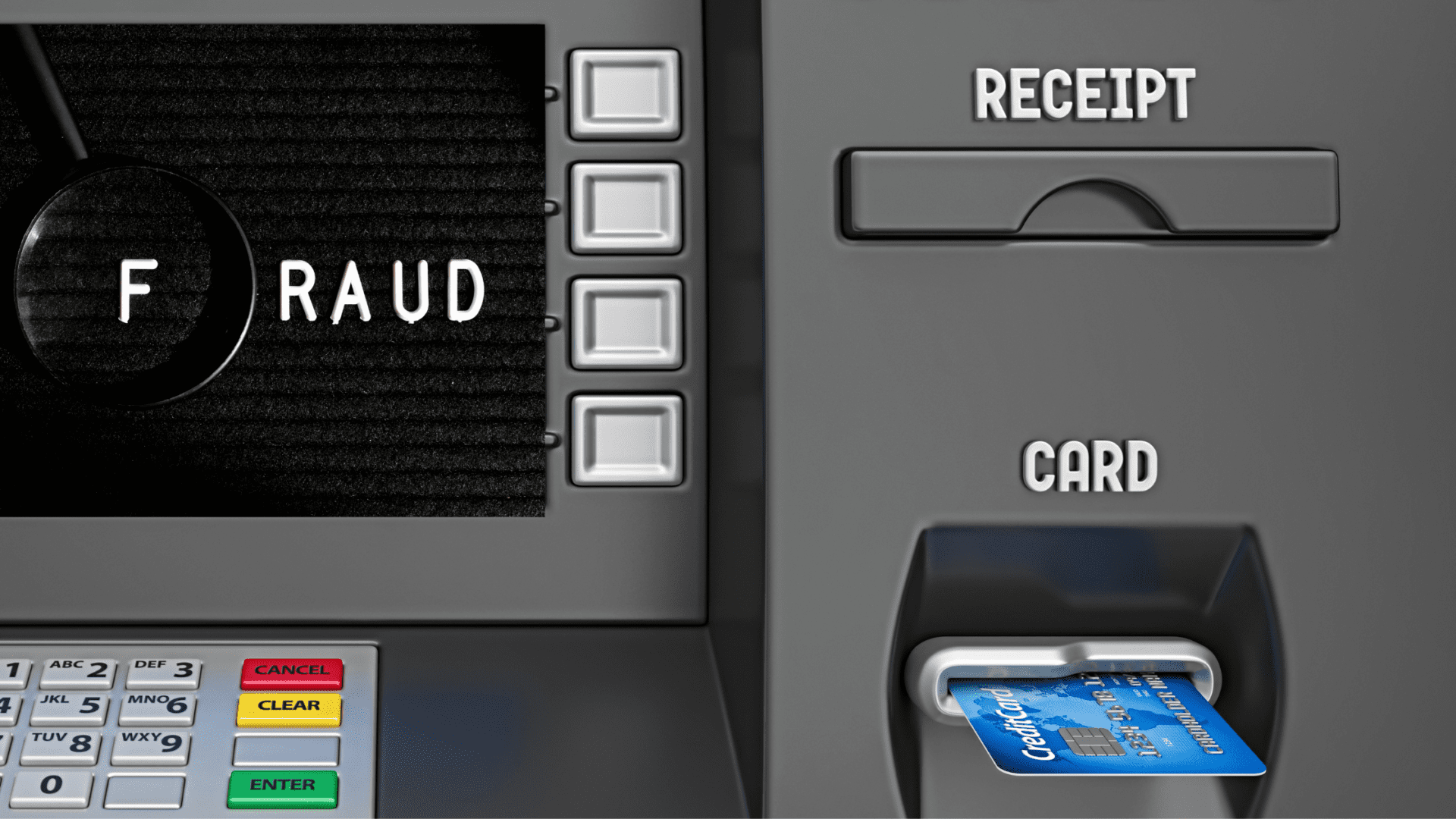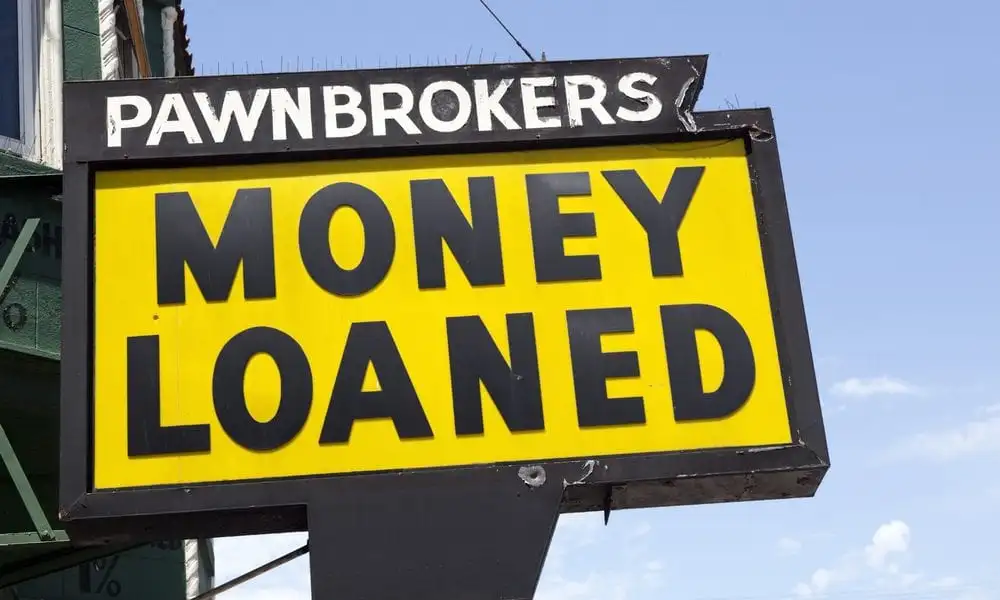Best Selling Author Brett King’s Career as a Global Banking Futurist Sprung from His Roots as a Newspaper Delivery Boy
You might not know him, but banks and credit unions feel his influence every day. Given his vast array of professional skills, it’s probably safe to assume that Brett King has difficulty filling out the “Occupation” box on his medical records. At any one time in his day, this Australian fintech thought-leader could be attending to his startup mobile banking business, capturing banking-industry insights in his latest book Branch Tomorrow, providing his acumen to media outlets that include the BBC and the Huffington Post, or hosting a radio show (“Breaking Banks”) to a monthly listening audience of 6.5 million listeners over 180 countries.
Clearly, King has emerged as a voice worth heeding. He has proven especially insightful tor U.S. bankers currently navigating industry issues that include:
- The transformational impact of AI
- Competition from nonbanks
- An ever-shifting matrix of cybersecurity issues
- Ongoing regulatory uncertainty
King has opinions on all these concerns (and more). And his responses to them are formulated atop of a background of early entrepreneurship, bold confidence, savvy observation, and faith in the future.
Where did this fertile mind for business and industry first emerge? Turns out it was King’s time as a neighborhood paperboy.
-Brett King gives a quick background to Dan Weckerly, John Durso, and Keith Daly.
Early Lessons in Business: A Paperboy’s Journey
“I had a paper route,” King recalls. “I ran it for a number of years, getting up at 5:30 a.m.
“It was brutal,” he describes. “I remember coming home one very cold winter morning. And I hadn’t had proper protection in terms of gloves and so forth.
“We had one of those old gas heaters that blew hot air. I put my fingers on it, but they were so cold that I didn’t feel anything at first. But seconds later, I had burned the skin off my fingers.”
Early Lessons in Customer Service and Entrepreneurship
Those early days proved to be a graduate-level course in customer service.
“If there were a problem with one customer’s paper, I would get a call from that subscriber, telling me there was some issue – the paper was wet or had gotten torn or was missing a section. And I would have to get back on my bike and replace it, regardless of how tired I was.”
One particularly disastrous delivery was a sheer force of nature. “I remember one morning,” King relates, “that I left a paper stuck under a gate for one customer. After I left, a storm came up and blew it all over the subscriber’s yard. So that also resulted in a phone call, and I had to go back out and clean up an entire morning edition strewn across the property.”
But that business opportunity was not only formative it was profitable. Soon after, King retired from his route, sold his BMX, and used the proceeds to buy a Commodore VIC-20 computer. The curiosity that drove the transaction became the spark for a career that would take him from coding in his bedroom to boardrooms and stages around the world.
“That was my first real investment,” King recalls. “I wasn’t just buying a machine. I was buying the chance to create.” In this discipline, King was self-taught. “I learned coding by buying gaming magazines at the local drugstore. They were filled with just sheets of code.
“I had to type code by hand, off the page, to get a game to work on my console. And that was the way I learned syntax and programming.” Even before finishing high school, King had developed production-level code. “I realized then that technology wasn’t just a tool — it was a superpower. If you understood it, you could build the future.”
But like any powerful tool, King learned that its allure can also have a downside.
At Melbourn High School, his coding skills had developed to the point of rivalling a commercial programmer. With that powerful insight, he succumbed to the temptation to check out his grades.
“I got in trouble in school for hacking into the teacher-administrator portal,” he admits. “I was curious about my class ranking. I wasn’t there to change anything, although I probably could have. I just wanted to see where I was, relative to the other students.”
From Strings of Code to Strings on a Guitar
The corollary between computer skills and musical proficiency has been well documented, and King’s background confirms the link.
“I was in a band when I was younger,” he recalls. “I was the lead singer and guitarist. Right out front.
“The band’s name was ‘No Exit.’ And we would joke at the time: Once we start playing, the audience isn’t allowed to leave.”
The No Exit setlist was pop-contemporary, which, for that era, meant a lot of Huey Lewis and the News, Dire Straits, and a bit of Van Halen. “Wedding stuff,” King explains. “Parties. Anything.”
The guitar served as not only an outlet for King’s music talents but also as something of a shield.
“I couldn’t dance,” he recalls. “So, the guitar became something of a prop that I could hide behind.”
Brett King’s Childhood: Family, Film & Fascination
Despite what could be seen as a teenage superpower with computers, much of King’s childhood was fairly typical. His father was in sales; his mother held different jobs along the way, including work at a local squash court. King would visit occasionally and developed respectable skill at the game.
His father’s talent at commerce leveraged a fine ability to communicate, which transferred to his offspring. King’s dad’s career evolved over the years; he also spent time owing a travel agency (sparking his son’s wanderlust) and serving as a local magistrate (a civil officer/lay judge).
Life at home at that period also included going to the movies with his family.
“I was a big sci-fi fan,” King recalls. “Going to the movies with my dad was particularly memorable. I remember two specifically: In Search of Noah’s Ark (1976) and Star Wars (1977).”
The latter film’s appeal for King was heightened by his television favorite of that time: Star Trek reruns, which he watched on a vintage family television he rescued and set in his room. He also caught a big-screen rerelease of 2001: A Space Odyssey that left a memorable impact.
The Dot-Com Boom and the Making of Bank 2.0
Maximizing his most marketable skill (coding), King took a coding job three months after graduating high school. He then decided to attend college part time, seeking a Bachelor of Commerce degree while continuing to write complex strings of automated directions for computer operations.
In 1997, he took an offered opportunity with Deloitte. “I ended up doing an entrepreneurship program there,” he says. “That led to a mature-age MBA slot at Bond University in Gold Coast, Australia.”
He intended to parlay his accumulated credits there into an MBA but dropped out of the program a year later to move to Hong Kong. “It was the middle of the dot-com boom,” he says. “The energy in Asia around digital business was off the charts, and I wanted to be in the middle of it.
“Within a year of being on the ground in Hong Kong,” he continues, “I was teaching the MBA program on e-commerce.”
The Birth of Bank 2.0
He left Deloitte for Modem Media, the number one digital agency in the world at the time. There, he helped firms like HSBC and Cathay Pacific experiment with digital strategies that felt futuristic. Later, at HSBC itself, he wrote a 2005 internal report that declared mobile would overtake branches as the primary channel for banking by 2015. “They thought I was nuts,” King reveals. “But I wasn’t making a wild guess — I was just watching how people used their phones.” That report would eventually morph into his breakout book, Bank 2.0.
The Author Who Foresaw the Future of Banking
Bank 2.0 positioned King as a kind of translator for an industry wrestling with technology. “My job,” he notes, “was to hold up a mirror to the customer and say, ‘Look—this is what they’re already doing.’”
More books followed: Bank 3.0, Bank 4.0, Augmented: Life in the Smart Lane, and The Rise of Technosocialism. Each layered in bigger questions: not only how banking would change, but why those shifts mattered for society. His next release, Branch Tomorrow (due in September 2025), revisits the enduring debate over branches, with King arguing that their community role is shrinking but not disappearing entirely.
This industry consolidation, he believes, will require some deft adaptation for survival. As AI makes inroads into commercial lending — automating underwriting and monitoring — institutions that hesitate may find themselves quickly outpaced. “Community banks have got a tough road ahead,” he predicts.
King Co-Founds Moven, the First Mobile Neobank
King isn’t only a commentator — he’s a builder. In 2012, he co-founded Moven, the world’s first mobile-native neobank. “We wanted to make money smarter,” he says. “Real-time receipts, spending insights, nudges to save: All the things banks talk about now but weren’t even on the table then.”
Moven’s impact outlived its original business model. Its ideas have been widely adopted, proof that King’s experiments pushed the industry toward innovation.
King’s Global Recognition and Influence
Recognition soon followed. American Banker named him the 2012 Innovator of the Year. Banking Exchange dubbed him the “King of the Disruptors.” And The Financial Brand ranked him the top financial services influencer worldwide. His ideas have been cited by world leaders, including Chinese President Xi Jinping, who tacitly endorsed King’s views by having his book on a shelf during a high-profile interview. “That was surreal,” King admits. “I wrote Augmented in my study at home, and suddenly it’s in the hands of a head of state.”
But his reach is most evident through his podcasts, Breaking Banks and The Futurists. Together, they draw over 6.5 million listeners in more than 180 countries. “What I love is the conversation,” King says. “It’s not about me predicting the future — it’s about bringing together people who are building it.”
Brett King’s Restless Curiosity
King’s ventures continue beyond banking. Today, he is involved in a dental technology startup using AI to democratize oral health. “It’s the same story,” he explains. “Technology can either entrench inequality or expand access. I’ve always believed it should do the latter.”
As stress relief, to escape the pressures of forecasting in such a volatile industry, King is a hobbyist pilot. “That’s something not a lot of people know about me,” he reveals. “The most experience I’ve got in the air is with a Cessna 210, which is a six-seat, single aircraft. And also a Cirrus SR-20, which is amazing.”
From a teenager typing out magazine code to a global voice shaping conversations on banking’s future, King’s story is less about titles and accolades than about an ongoing restlessness. As he puts it: “The question I keep asking is, ‘What’s next?’ That’s the only way to stay relevant in a world that never stops changing.”
Want More Brett King?
An overview of Brett King’s career would be incomplete without some examples of what he’s presently seeing in the banking industry and what future developments he’s tracking. Banking+ has had those conversations with King and summarized his predictions on the future of banking.
Or listen to the interview in its entirety:

